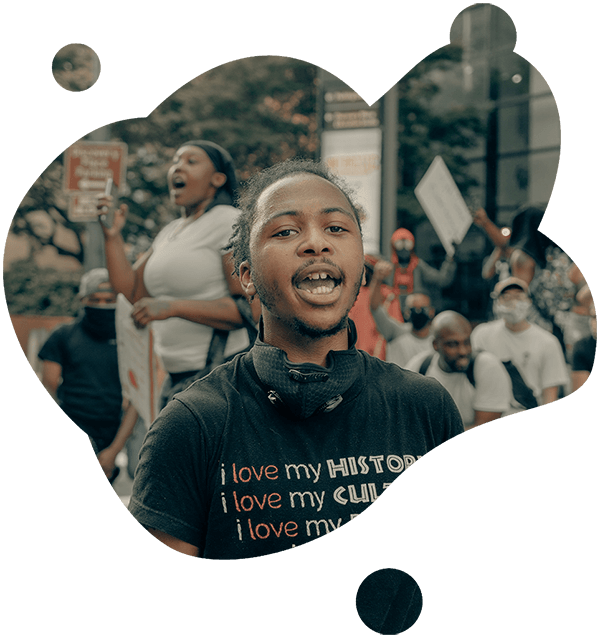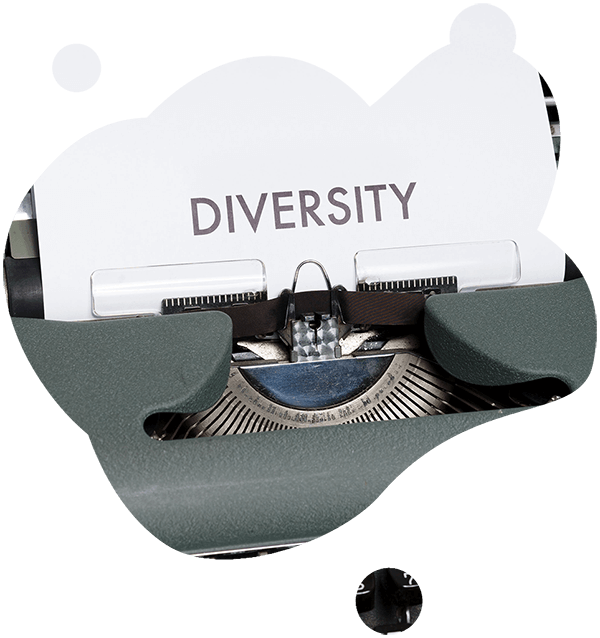ED&I is the abbreviated term for Equality, Diversity, and Inclusion. It ensures fair treatment and opportunity for all, with the aim of eliminating prejudice and discrimination based on an individual group’s character traits.
The UK 2010 Equality Act covers these character traits which are known as protected characteristics and it is against the law to discriminate against someone who falls within them. The protected characteristics are:
Any business that wants to commit to being an employer who takes ED&I seriously has to be prepared to embrace a workplace culture change and commit to a long-term, sustainable commitment to promoting equality, diversity and inclusion in their workplace. A great place to start is to understand what ED&I means individually.
Equality is another word for fairness.
Equality in the workplace must ensure that individuals or a group or individuals are treated equally. There should be no one in the workplace that is treated less favourably due to Unconscious Bias or any of the protected characteristics listed above.
Equality is not limited to treatment of individuals or a group, it also relates to the opportunities given to employees in a workplace.
Everyone should get access to the same tools, opportunities, and experiences needed to deliver their role in an equal and fair manner.
Read our International Women’s Day 2023 blog on Equality vs. Equity


Diversity covers the types and variations of different characteristics in a group of people; these characteristics are what make us unique and shape our identity.
Everyone is different and difference brings new perspectives, different ideas, and a different mindset that helps promote an empowered culture change in the workplace that can deliver increased creativity and innovation.
Gender diversity most commonly refers to an equal ratio of men and women. Some of the most common industry areas that see a dominance in male employees over female is in the STEM sector.
Read more on Diversity in STEM: What It Is and Why It Matters
Diversity is required in order to have a fair and productive working environment. Gender diversity in a workplace means that men and women are hired at a similar and consistent rate, are paid equally, and are given the same working opportunities with the same promotional opportunities.
Inclusion is about creating an environment where everyone feels welcome and everyone feels valued. Creating an inclusive workplace can be achieved through tackling the unconscious bias traits that can affect so many businesses’ workplace culture.
A key part of inclusion is allyship which involves advocacy; creating actions, behaviours, and practices to advance those who are often marginalised or overlooked.
Our Inclusion Allies workshops help create inclusive, psychologically safe workplaces where we can all bring our true selves to work. Our workshop creates a safe space to have a structured and open dialogue with a diversity and inclusion specialist and provides specific tools and techniques to be an effective ally.

ED&I is fundamental for all businesses and not just those in the STEM sector. Everyone should have an equal chance at career development regardless of their origin, sex, or affiliation.
Promoting diversity in the workplace can make it possible for businesses to attract, retain and progress key talent that can lead to new ideas and innovations. Thus increasing market reach and profitability.
In traditionally white, male dominated business fields such as those found in the STEM sector, not addressing ED&I can be detrimental to the business and limit their creativity, innovation, and even profits.
For the STEM sector to be fully equipped to solve current and future challenges, diverse perspectives and a positive workplace culture that embraces fresh thinking and new ideas is vital.
The world is changing and it is important for STEM sector businesses to have an ED&I strategy in place to ensure they do not get left behind.
What is an Equality and Diversity Policy?
ED&I in the workplace requires employees to understand the unconscious biases that can create divides between themselves and foster a negative workplace environment.
Without realising it, employees may subconsciously recruit people who are similar to them, or managers may prefer to give work to one group because of unconscious stereotypes that they may hold. This can create a workplace environment where homogeneity prevails, leading to similar thoughts and feelings and a lack of innovation.
Get in touch with us directly to discuss how we can help and visit our FAQs.
We offer Unconscious Bias training which is ideal for organisations who are at the start of their diversity and inclusion journey. Understanding why we are all biased, how they are created and maintained is a key theme, alongside introducing the impact these biases can have on our workplaces and employees.
Our workshops are delivered by experienced sector specialists who can quickly get to the issues at the heart of the organisation. Each session gives participants the opportunity to ask questions and interact with the trainer and is tailored to meet the needs of the audience.
We have a successful record in delivering our impactful Unconscious Bias training to all business levels; from the boardroom, to specific functions such as recruitment, through to shop-floor operatives.